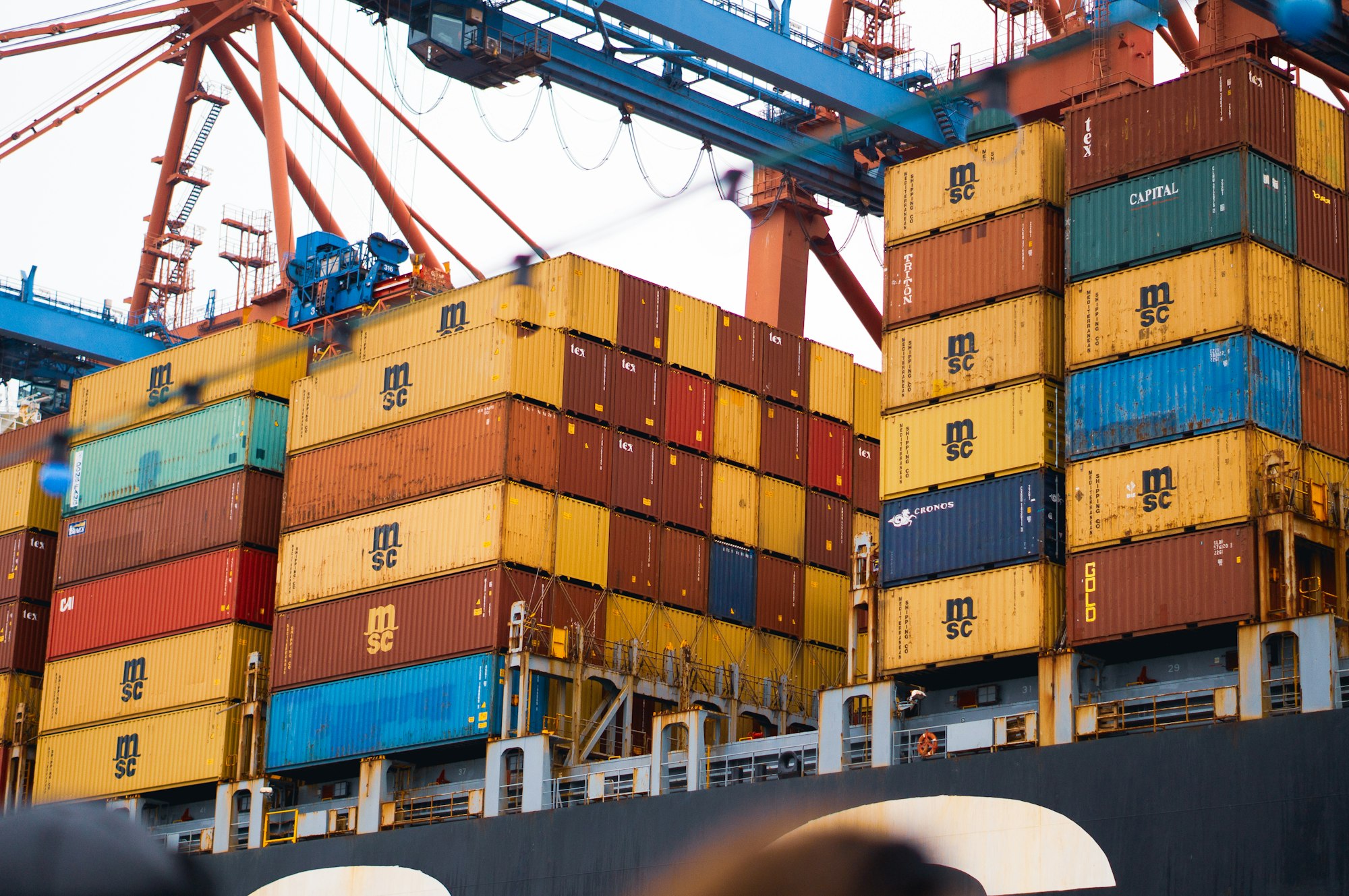As a grad student in London in the 1990s, I earned a bit of extra money sourcing and exporting handcrafted furniture from India to the United States for interior designers. My U.S. customers were small businesses, but I was even smaller, so if I wanted to sell to them I had to take on most of the risk. On school breaks I would travel to India, find what my customers were looking for, purchase it, accompany it to the port, and—when I could—watch as it was loaded onto a ship.
Spending the summer standing guard over my investment was time consuming, emotionally taxing, and expensive. The extra costs reduced my profits substantially. Why did I insist on being so “hands on” instead of relying on arm’s-length contracts in which physical control and oversight are replaced with specific terms and references? Because I was investing the next semester’s tuition, and if someone failed to pay me, going to court was not an option. Lawyers are expensive. While India was familiar to me, its courts and laws were not. If an American buyer didn’t pay, traveling to the States to sue while living abroad was out of the question.
In other words, as a microenterprise, I lived close to the edge. One mistake and, poof, there went my tuition.
As high as my risks were, for most micro and small enterprises (MSMEs) in developing countries, the risks of entering global value chains are even higher. All this risk must be accounted for in contracts because litigation isn’t an option, principally because there is no cross-border enforcement of litigated judgements and arbitration is too expensive and complex. While alternative dispute resolution (mediation, arbitration, med-arb, multi-tiered) has exploded in popularity for larger businesses and for investor-state agreements, it hasn’t found its way to the MSME community. As a friend in the arbitration business told me recently, “micro businesses couldn’t afford the coffee at most arbitration centers.”
Twenty-five years later, the risks are largely the same. But the emerging field of online dispute resolution (ODR) promises to change the landscape dramatically.
Enter ODR
I was recently invited by the U.S. Department of State and the governments of Japan and Hong Kong to participate in an Asia Pacific Economic Cooperation (APEC) workshop on the development of a platform and procedural rules for ODR for MSMEs doing business across borders. It’s a tough problem. The Executive Director of the Hong Kong, China, APEC Business Advisory Council, David Dodwell, remarked that pushing small businesses into the unfamiliar world of global value chains without contracting skills and access to commercial justice is like “ordering soldiers out of the trenches armed with baguettes.”
Part of the solution is to establish the foundations for enforceable awards at low cost, relying heavily on technology. Technology and a little creative legal thinking can reduce the cost of dispute resolution from $1,000 an hour to $1,000 a case. Or even $100 a case. ODR, accordingly, has tremendous potential to spur growth in developing countries.
Electronic Lawyers, Anyone?
As with mobile money, ODR is a disruptive innovation driven primarily by technological advances in the way people interact, the way artificial intelligence (AI) is applied to real-world problems, and the way information is protected. ODR doesn’t replace lawyers, or any of the existing justice mechanisms, such as litigation, mediation, and arbitration. Emerging at the intersection of alternative dispute resolution and information and communications technology, it simply adds another method to the mix—one that combines many of the elements of the others, but with cost savings and other efficiencies built in.
Most ODR systems (yes, they’re already out there; see Modria and Matterhorn, for example) rely on a multi-tiered dispute resolution approach, administered online with varying degrees of human intervention. Where liability is challenged, the first stage consists of technology-assisted negotiation in which machine learning allows the computer to prompt formulations and reformulations of the problem and of the parties’ interests so that they may achieve a consensual middle ground. Assisted negotiation and mediation aren’t about the law as much as they are about the parties’ future interests rather than their present grievances. Most disputes can end at this stage. Further stages can include AI-driven mediation and, of course, mediation or arbitration that is supported by real people but done remotely using virtual courtrooms and blockchain technology for protecting evidence and other information.

Law students in Myanmar learn about dispute resolution. Photo: USAID Myanmar.
Getting on the Same Page
The purpose of the workshop, held at the Japan International Dispute Resolution Centre in Osaka, was to advance the APEC Work Plan on ODR and to establish a collaborative framework among APEC’s 21 economies—a set of rules and procedures that would apply to ODR platforms in the region—and to draft ODR language for the 2018 APEC Ministers’ and Leaders’ statements. The workshop attracted more than 90 participants, including government representatives from 17 of the 21 APEC economies. All of APEC’s developing member economies were present.
APEC’s interest in ODR stems from a recognized need to improve access to commercial justice for MSMEs, particularly those doing business across borders. The work plan consists of aspirational objectives and activities:
- Build a pilot in conjunction with a platform host/ODR provider
- Promote harmonization of ODR laws using existing international instruments
- Collaborate across APEC
- Gather research and information
- Design a model ODR platform
- Develop ODR procedural rules
- Build capacity in ODR
- Leverage the private sector and academia
- Explore technology for contract management or enforcement and prevention of disputes
If an ODR framework can be established in APEC, it would be accessible to nearly half the world’s population.
Obstacles to ODR
The biggest challenges are the traditional, but arguably outdated, protections in relevant laws. An example is Indonesia, whose law on arbitration requires physical appearances by the parties and physical written submissions. Indonesia is also not party to important treaties that facilitate contracting, choice of law and forum, and dispute resolution, such as the UN Convention on Contracts for the International Sale of Goods, and it has not adopted the UNCITRAL Model Arbitration Law. Indonesia’s law also allows arbitrators to physically inspect property in dispute if a party asks for it, and it allows a party to request physical meetings outside the place where the arbitration is held. Many other developing (and developed) countries have similar laws that would need to be amended.
Other important roadblocks include issues of due process (can AI provide parties with due process?), cross-border legal practice, and privacy concerns.
The topic on which I spoke at the workshop is one of the most challenging problems. Many countries, both developed and developing, do not permit consumers to waive their rights to “traditional justice” (read courts). We can restrict ODR (and other forms of alternative dispute resolution) to business-to-business transactions, but it is often difficult to distinguish between a consumer transaction and one that is for business. Did I buy the computer I’m writing this on for business or for personal use? Even if it was purchased for both personal and business use (which it was), how would the seller know unless I told her? Does it matter? What if something is to be used only for occasional, or even rare, personal use? The rules we apply in the business-to-business ODR context may run severely afoul of national laws on the subject and need to be reconciled for the system to function properly.

Niche products like roasted coffee are being marketed internationally by microenterprises. Photo: Mark Walter.
The Development Community’s Role
We are already seeing more donor interest in commercial and alternative dispute resolution. The U.S. Agency for International Development is building some of this programming into new projects, and the U.K. Foreign and Commonwealth Office is designing entire projects around rule of law for business, which includes alternative dispute resolution and, potentially, ODR.
For their part, implementers need to learn about their constituents’ culture of contract and dispute resolution, the challenges MSMEs face, and how they would benefit from improved skills and incentives (such as ODR) to take advantage of new dispute resolution mechanisms. Likewise, the ICT4D community has an important role to play in the development of localized, technology-assisted contracting and dispute resolution solutions.
The payoff for MSMEs is a potential transformation of their prospects in global markets.




